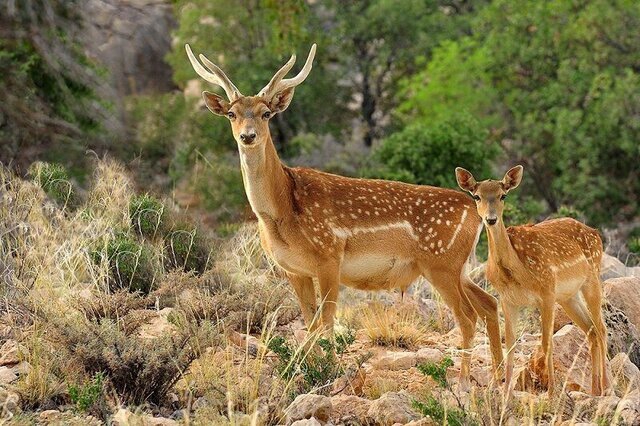Tuesday 20 December 2022 - 15:29
Story Code : 402690
DOE outlines plans to protect Persian fallow deer
�We are trying to increase the deer population at the breeding sites and continue to search for suitable habitats for the species,� ISNA quoted Hassan Akbari as saying on Monday.
The population of Persian fallow deer has been fluctuating, he said, adding, �At a time it reached 700 with captive breeding plans, but in some breeding centers, it faced problems,� he lamented.
A total of 270 deer have remained in the country, he said, adding, nearly 200 are males and 70 are female, and this is a big risk for the breeding process.
Various places were visited to find a suitable habitat to return this species to nature, but unfortunately, we have not yet found an appropriate spot that has untouched forest, few conflicts, suitable habitat, and the possibility of protecting this species, he explained.
We are trying to increase the deer population at the breeding sites and we will also continue to search for the right natural habitat to gradually return this species to the wild, he further stated.
The International Union for Conservation of Nature classified the Persian fallow deer as endangered in 1996, vulnerable in 2006, and endangered in 2010.The Persian fallow deer is a rare deer native to West Asia, today occurring only in Iran. The International Union for Conservation of Nature has long classified the Persian fallow deer as endangered in 1996, vulnerable in 2006, and endangered in 2010. A situation that has not changed much over the years.
The main habitat of fallow deer in the country includes western and southwestern areas, but the declining trend in the number of these valuable species in the 1330s (falling from 1951-1961) led to measures to save them in the late decade.
For the past 60 years, the species are inhabiting protected areas, and the most important center for the reproduction of fallow deer is the semi-natural breeding site of Dasht-e Naz in the city of Sari, where in the last two years the population of the species has grown significantly.
Another habitat for the reproduction of valuable species is the Ashk Island of Lake Urmia, which has become a safe place to protect the species from extinction due to the difficult access of illegal poachers.
Persian fallow deer population in the Dasht-e Naz site has increased by about 60 percent, amounting to 53, in less than two years.
Over the years, 8 areas in different provinces were considered for the breeding of this species, as well as four private breeding centers and zoos, where fallow deer were kept, but some of them did not appear successful and closed down, according to the Department of Environment (DOE).
Iran�s Environment and Wildlife Observatory recently announced that out of 320 fallow deer counted in 2008, only 30 remain on Ashk Island today, and this subspecies is on the verge of extinction.
By TEHRAN TIMES
# Tags











